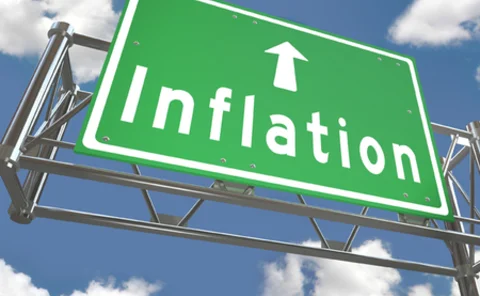Research
IMF paper makes case for new policy rate in Kazakhstan
Economists say the National Bank of Kazakhstan should be equipped with a new policy rate to give it more direct influence over short-term interest rates
Finland paper: Loans-to-deposits among best indicators of banking crises
Paper examines banking crises in 11 EU countries between 1980-2013; growth rates and trend deviations of loan stock variables also yield 'useful' signals of impending crises
Banque de France paper quantifies impact of EBA capital exercise on lending
Banque de France working paper examines lending behaviour of banks subjected to the recapitalisation exercise ran by the European Banking Authority in 2011–12
Revisions to output gap estimates can skew fiscal stabilisers, IMF says
Working paper proposes a ‘rule of thumb' to take into account the likelihood of revisions to estimates of potential GDP when activating fiscal stabilisers
IMF researchers map out countries’ macro-financial risks
Working paper presents a framework for linking the various aspects of the IMF’s surveillance, and a tool for mapping out the various conditions in each member state
IMF paper warns low inflation will increase G-7 debt burden
Zero per cent inflation for five years would increase the average debt-to-GDP ratio by five percentage points, but researchers warn against chasing high inflation to erode debt burden
Exchange rate losing significance in Asian monetary policy, BIS paper argues
Bank for International Settlements working paper argues sterilised intervention in currency markets is becoming less effective as Asia's economies trade more freely with each other
'Intra-firm borrowing' reduces liquidity risk at 'global' US banks, say NY Fed staff
New York Fed staff report finds 'fundamental differences' between banks with and without foreign affiliates
Goodman, Goodman, Goodman and Goodman break new ground on coauthorship
Four economists sharing the surname Goodman - including Sarena Goodman of the Federal Reserve Board - explore coauthorship by economists with the same surname
Economists worldwide find cash still used ‘extensively’
Economists from Australia, Austria, Canada, France, Germany, the Netherlands and the United States compare survey data on payments; find cash ‘has not disappeared’
‘Shadow policy rate' measures Fed monetary policy stance at ZLB
BIS working paper describes a shadow policy rate constructed from a number of variables reflecting monetary policy actions to divine the Fed's stance at the zero lower bound
Czech paper aims to overcome ‘model uncertainty' over motives behind international reserves
Czech National Bank economists use Bayesian model averaging to suss out the chief motivations of holding international reserves
Dutch economists back OMTs
Researchers find the dispersion of lending and deposit rates in the eurozone is largely attributable to the differences in the sovereign risk of its member states
Irish inflation is domestically determined, central bank economists find
Paper by Central Bank of Ireland deputy governor Gerlach and colleagues challenges traditional view that Irish inflation dynamics are determined abroad
Inflation report forecasts tend to be right, research shows
IMF and Czech National Bank economists check inflation outcomes against central bank predictions, finding them to be broadly in line
Inflation targeting and fiscal rules work best together
IMF working paper finds fiscal rules and IT regimes are both more effective when they are used together; they also work best where the fiscal rule is brought in first
Greater competition leads to riskier banking, ECB working paper says
Paper finds more competition led banks to resort to more securitisation, greater risk and ultimately a higher probability of being bailed out
Monetary policy shock hits Norway house prices hard
Meanwhile, impact on household credit is muted, according to Norges Bank working paper; adds findings are consistent with small quarterly refinancing rate of mortgage stock
ECB paper finds press conferences have ‘gained in importance’
European researchers find the president’s press conferences have become a more important communication tool since the financial crisis
Canadian government wields macro-prudential power, IMF paper says
Government control over high loan-to-value mortgages has successfully taken some heat out of the Canadian housing market since the economy began to recover
Monetary and macro-prudential co-ordination works well when pulling in same direction
Monetary and macro-prudential policy co-ordination brings benefits when they are both aiming at the output gap, but not when the regulator emphasises financial stability
BoJ has increased income inequality, says Dutch paper
Researchers at The Netherlands Bank say the Bank of Japan’s asset purchases have contributed to the country’s income inequality by pushing up asset prices
New Riksbank data finds household debt higher than previously thought
Study by the central bank puts average debt ratio for households with mortgages at 313%, roughly double the official national average
Big eurozone economies dragged each other down during eurozone crisis
Sovereign CDS in Spain and Italy showed ‘notable co-dependence' in 2009–12 and also explained much of the widening in Germany's spreads, IMF paper says





















